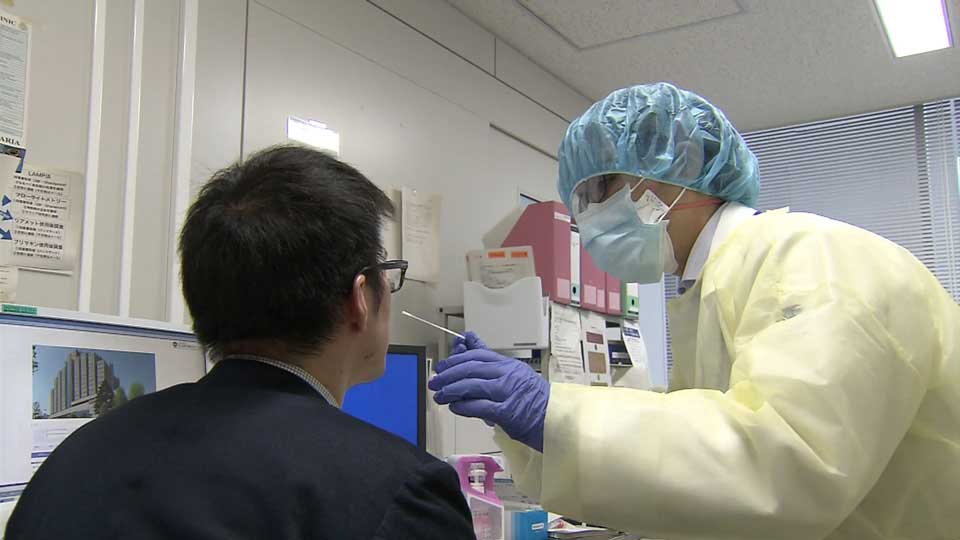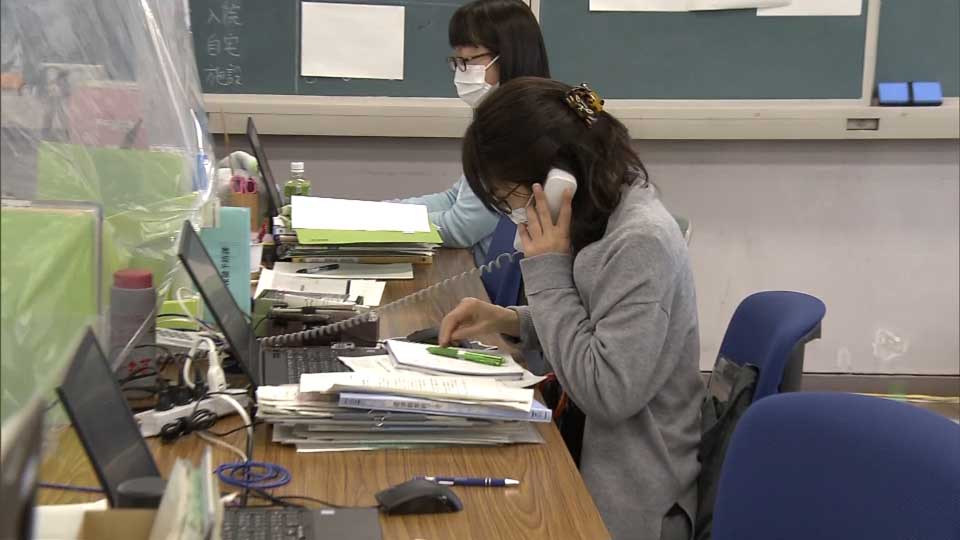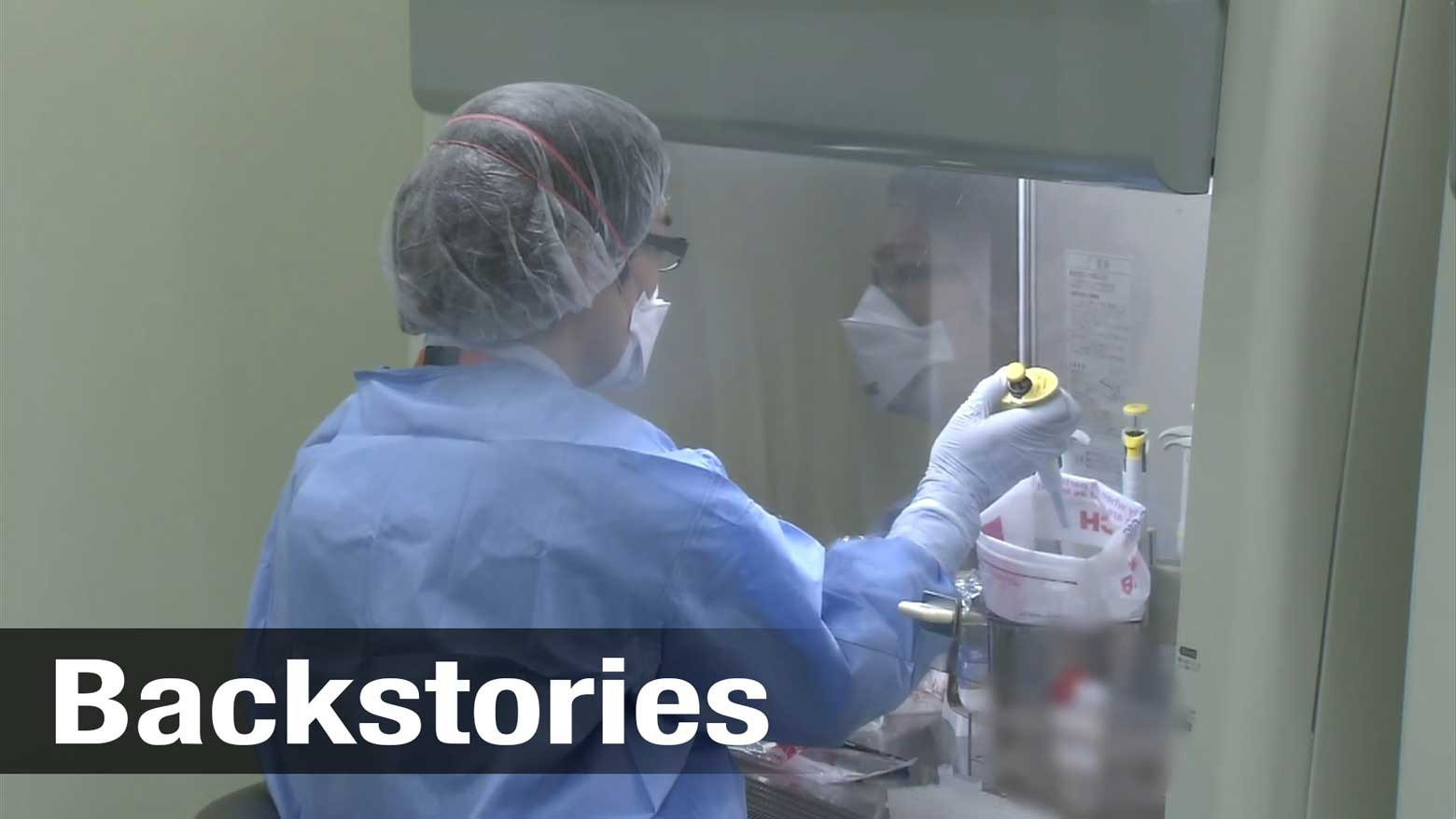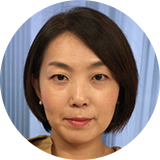Doctors lament testing difficulties
"The healthcare center won't accept tests, even if it's for a patient who is highly likely to be infected."
A doctor at a clinic in northern Tokyo spoke to NHK about the problems with Japan's testing system, on the condition of anonymity. His practice is one of the few in the region to specialize in respiratory and infectious diseases. He has treated many patients who were likely to be infected with the coronavirus. But he says getting them tested has not been easy.
If a person thinks they may be infected with the coronavirus, the government urges them to consult their doctor or call a public health center. Then, if the doctor determines they should be tested, the person visits a designated hospital. But the respiratory specialist says that in practice, it is a much more difficult process.
To determine whether a patient fits the criteria for a test, the specialist says he has to conduct a series of checkups, including blood tests, X-rays, and flu sampling. This time-consuming process is done in order to eliminate the possibility that the patient has a different illness. And even if he determines that the patient is likely to have the coronavirus, the specialist says the biggest hurdle is calling the local health center to request a test. He says this is almost always rejected.
"I've been rejected ten times," he says. "I've had three patients accepted. It's demoralizing. I don't want to call anymore. Honestly, if I think a patient will survive on their own, I have to tell them to stay home and try to get better."

Questions over limited tests
The limited number of tests has raised doubts about the accuracy of the government's case total. The US Embassy says the lack of widespread testing has made it difficult to assess the situation, urging citizens to return home immediately as they may not be able to receive adequate care in the event of a further spike in cases.
NHK spoke to Kato Takuma, deputy director of the Tuberculosis and Infectious Diseases Control Division at the Health Ministry. He seemed indignant when asked about the low number of tests.
"The government has never asked anybody to reduce the number of tests," Kato said. "We've been telling public health centers since February to conduct more tests."
But he also acknowledged the difficulties these centers are facing.
"If there are not enough resources and capacity, then we will allocate a budget for external staff members to deal with the problem."
Hospitals limit number of tests
A number of public health centers are already reaching capacity and have been unable to keep up with the recent spike in cases. A counseling center in Chigasaki City, near Tokyo, receives more than 100 inquiries every day. But it says its ability to respond is hampered by the limited number of medical institutions willing to process test samples. These facilities are taking measures to prevent the spread of infection within their walls. As a result, the counseling center says it can only collect up to eight samples a day.
A similar situation is developing in Tokyo's Katsushika Ward. An official says it sometimes takes four days to process tests because hospitals are overwhelmed by the recent surge in cases.

Doctors come up with solutions
Doctor Takechi Yukako runs a respiratory clinic in Kawasaki City, south of Tokyo. Earlier this month, she received a message from a patient in his 70s. He said he was suffering from a 38.9 degree fever but was turned away from a designated hospital without so much as a seasonal flu test or blood sampling.
Takechi called the regional health center to explain that the man was a high-risk patient since he suffers from diabetes and chronic obstructive pulmonary disease. But she was told the designated hospital could not test him because it did not have enough resources. So Takechi took things into her own hands.
"I wore protective gear I bought online," she says. "Then I went directly to his home with a nurse, in order to avoid in-clinic infections."
She swabbed her patient, then placed the samples into a case that was collected by a health center official. Takechi says it was a difficult experience. But she accepts that doctors will have to shoulder the burden in this way going forward.
"If I don't do this, we can't help the people who really need our attention," she says. "Doctors in private practices like me have no choice but to do this."
The Tokyo Medical Association is attempting to ease the testing shortage. It is planning to launch testing centers at over 47 locations throughout the capital. However, with the rapid rise in cases, it may be too late to prevent the healthcare system from being overwhelmed.

